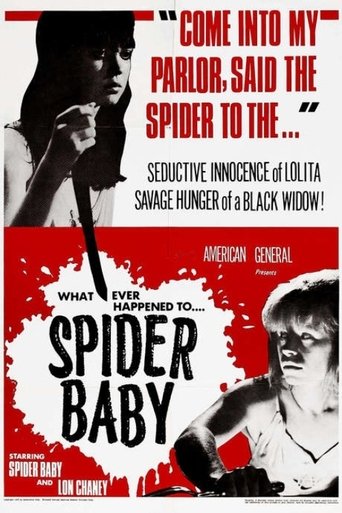Mantan Moreland, skådespelare, född 1902-09-03 i Monroe, Louisiana, USA, dog 1973-09-28 (blev 71 år).
Vi listar 1 film, tv-serie som han har medverkat/deltagit i - se via streaming och play.
Skådespelare
| År | Titel | Roll |
|---|---|---|
| 1967 | Spider Baby | Messenger |
Titlar
Bio
Although his brand of humor has been reviled for decades, Negro character actor Mantan Moreland parlayed his cocky but jittery character into a recognizable presence in the late 1930s and early 1940s, appearing in a long string of comedy thrillers . . . and was considered quite funny at the time! Born just after the turn of the century in Louisiana, Mantan began running away from home at age 12 to join circuses and medicine shows, only to be brought back time and again. During these times he sharpened his comic skills and developed routines and acts that eventually became popular on the vaudeville stage, or what was then called the "chitlin' circuit." A solo performer by nature, he often teamed up with other famous comics (such as Ben Carter) to keep working, and became a deft performer of "indefinite talk" routines, where two quicksilver comics continually topped each other in mid-sentence, as if reading each other's mind (i.e., "Say, did you see...?" "Saw him just yesterday...didn't look so good"). Mantan's focus gradually shifted his trade toward film, where he initially appeared in servile bits (shoeshine men, porters, waiters). However, his talent for making people laugh couldn't be overlooked and he soon earned featured status in Harlem-styled western parodies and grade "A" comedy films playing the superstitious, ever-terrified manservant running from any kind of impending doom. Moreland's peak in movies came with his recurring role as Birmingham, the skittish chauffeur, in the "Charlie Chan" series, where he was forever forewarning his boss to stay away from an obviously dangerous case or situation. Though haunted mansions were an ideal place for setting off his stereotyped character, Mantan would be haunted in a different way by this Hollywood success in years to follow. By the 1950s, racial attitudes began to change and, with the rise of the civil rights movement, what was once considered hilarious was now interpreted as demeaning and offensive to both blacks and whites. Mantan and others, such as Ste...
